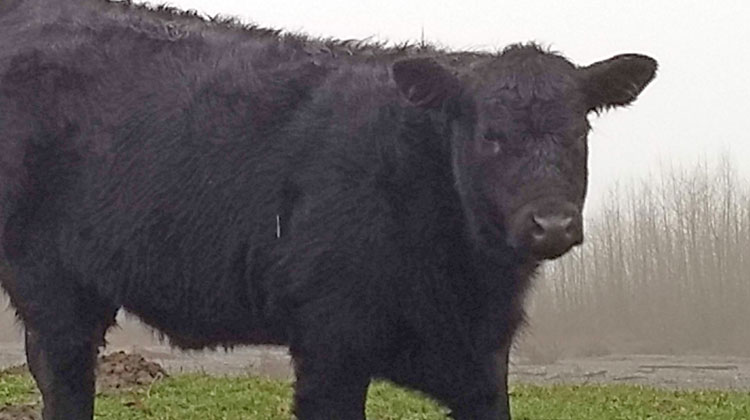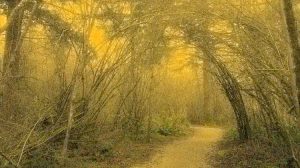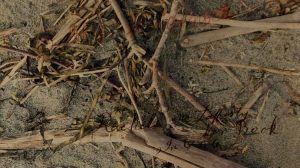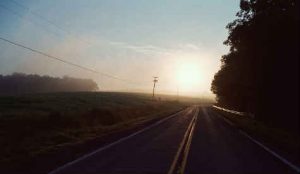
From blue doors
The epistolemology of the field
Blue smells here. Sky smells too. Hay sounds. Fence smells. Birds birding. Dandelions walking. Daisies lowing. Grass walking. Beetle still, except for growing. Moth immotile except for dying. A moss is a cow mossing. Patties in stupor until free to travel. So much depends on that red wheelbarrow. A fly unflying. Grass wheat unfleshed. The field is a medium, a telephone, a computer, a letter to another mother. The dog that chases the cows is sentimental. That breaks the text. This dog is now still. Not.
The fence transforms the waste land into field. Useful, that field is a field of battle and pastureland, a square on a chess board, the surface of a shield. This field is also action and the environment of the poem. That field is: disciplinary. An open country. This field is unencumbered by marsh, mountain, hill, forest. This field is arable. Useful. That field is useless. That field is time. This field is Duncan’s. That field is.
houses laughter
Today the bleeding trees are pungent with air. They hunger for rumour and blue tears. In the fields, the spongey ground is wanting authority. But here, by the houses, the chattel. They withhold without hesitation. You do not live within these walls, the houses say. You live for moments and movements, or hours or errors. The sky disputes these facts but not others. Today the earth offers great cry, but little wool.
This house is a house that is temporarily lived in. This is an object shaped with feeling. That house is description of fuss. A slanting laughter. Vocabulary is for birds, not cows.
Entangled with the house is a coral that promotes soft motions of dust. A slight of laughter like. The coral that leads is a coral that hides a fantasy of these blue doors. Behind those blue doors is heaven.
cow poetics
Pig the Carnivore claimed that they too had heard cattle speak French. Excusez-moi, mon cherie, a chattel once mooed, s’il vous plait me passez-moi de l’eau. Pig can’t speak French but he can speak in homophones and replied so diplomatically to the capital: accuse me, man? Cherry silly ewe plaint-me pass-me, I low.
But how did the cow respond? asked Limpet, disbelieving Pig’s claims. Pig shrugged philosophically. The capital had buried themself in the corner of the truck before breaking violently loose from its confines when Pig stunned it with a prod. Not to worry. The capital hadn’t gone far. Pig electrocuted it several more times on the hard road until its warm brains slurped its beautiful soft ears. A monstrous loving. Kind nausea is radical poetry.
Limpet nodded. For they had seen it and heard it too.
the barnacle tide of Steller’s sea cows
The sea-sweet sea-cows were sea-slick with sea-sleeves and sea-snapples. Once, a sea-strawberry, sea-sparrow and sea-sucker, only the slat of land swotted the sea-cows with sea-sickness. The seaboard un-sea-ed the sea-cows on sandy landcape. Dripping with sea-lentils on their land-hinds, the land-cows land-grazed over land-waves like land-beetles and land-bugs. Land-boarded by land-dunes, they were land-born. Land-cast by the land’s sun salt. Land-cows land-made land-claims to the land-club of other land-dwellers and land-tussock, but the sea-memory hollowed out land-fever. The land-wash land-lapped over their land-water land-hooves. These land-cows were landfyrd, without land-hunger even as they educed their tender land-legs. On the small land-mead, they land-lacked land-sickness and land-speech. Sealess with sea-speech. They savoured their new species.
Cited
Robert Duncan, Ground Work: Before the War in the Dark. NY: New Directions, 1984. 27.
“field, n.1.” OED Online. September 2019. Oxford University Press.
Ludovic Dutens, ed. “Account of a letter from Mr. Leibniz to the Abbé de St. Pierre, on a talking dog.” In Opera Omnia volume II. 1706. http://leibniz-translations.com/dog.htm




Leave a Reply